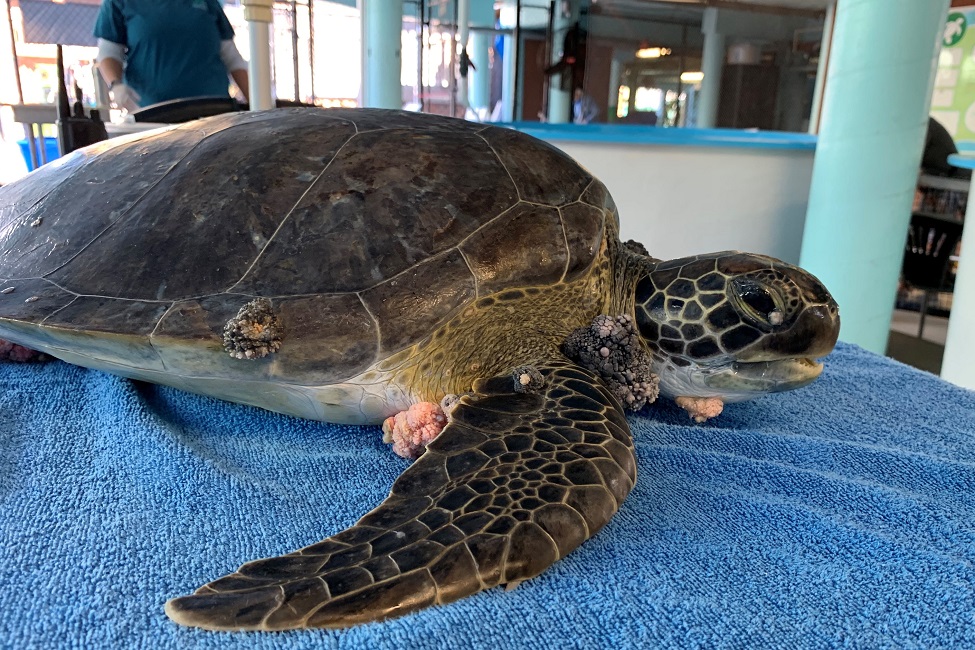Yes, turtles can carry diseases such as salmonella, which can be transmitted to humans through contact. Proper handling and hygiene are essential to prevent illness.
Turtles, popular as both wild creatures and pets, have the potential to carry a variety of diseases that pose health risks to humans. Among these risks, salmonella bacteria stand out as a common concern, often associated with reptiles and responsible for causing infections in humans.
While turtles appear harmless and docile, it’s crucial to acknowledge the importance of sanitation and careful handling to mitigate the spread of germs they might harbor.
Understanding the health implications of keeping turtles is vital for owners and enthusiasts to ensure safe interaction with these reptiles.
Educating oneself about the necessary precautions can lead to a healthier coexistence with these ancient, shelled friends.
Types Of Diseases Turtles Can Carry
Turtles are known to be potential carriers of various diseases that can affect both the reptiles and humans who interact with them. Bacterial infections, specific to Salmonella, often raise health concerns. This bacterium is present in their intestines and can contaminate their environment, posing risks to people handling turtles or coming into contact with their habitats.
Viral infections such as Herpesvirus can also afflict turtles, leading to respiratory issues, lethargy, and sometimes even organ failure. With fungal infections, shell rot is a common condition that deteriorates the keratin layer of the shell, impacting the turtle’s overall health.
Lastly, turtles can harbor parasitic infections, notably intestinal parasites which can lead to weight loss, digestive problems, and impaction. Maintaining proper hygiene and regular veterinary check-ups can mitigate the transmission risks of these infections.

Credit: www.fau.edu
Safe Handling Of Pet Turtles
Ensuring the safety of both pet turtles and their human caretakers is paramount to maintaining a healthy environment. Proper hand hygiene is crucial after interacting with turtles or their habitat. It’s advisable to wash hands rigorously with soap and water for at least 20 seconds to eliminate potential pathogens.
Another key measure is the use of separate feed containers for turtles. These should be distinctly marked and used solely for feeding your pet to avoid cross-contamination with human food utensils or surfaces.
Regular cleaning of your turtle’s habitat helps in preventing the buildup of harmful bacteria. It is essential to remove waste and uneaten food promptly, disinfect the tank, and replace the water frequently to ensure a disease-free environment for your pet.
Recognizing Symptoms In Turtles
Turtles, like any other pets, are prone to various diseases, which can be indicated by a series of symptoms. It is crucial for turtle owners to monitor their pets’ eating patterns as changes in these habits often suggest health issues. A decreased appetite or refusal of food can be a sign of distress or illness in turtles.
Lethargy and inactivity are other symptoms that should raise concern. Turtles typically exhibit a certain level of activity and curiosity, and a deviation from their usual behavior might be indicative of underlying health problems. Vigilance in early detection is key to preventing the escalation of potential diseases.
Another telling sign of a turtle’s health is the condition of its shell. Shell discoloration and damage, such as cracks or peeling, can be a manifestation of nutritional deficiencies or infections. Timely veterinary consultation is essential to ensure the well-being of these reptiles when such abnormalities are observed.
Preventing Disease Spread From Turtles
Turtles can harbor a variety of pathogens that may lead to diseases in humans. To prevent the spread of diseases from turtles, it is essential to implement proper biosecurity measures. A crucial step is the quarantine of new turtles.
This involves isolating them from your existing pets to monitor for any signs of illness and ensure they do not introduce pathogens into an established group.
Another key preventive strategy includes disinfecting turtle equipment regularly. Items such as tanks, filters, and feeding tools can become vectors for disease. Utilize appropriate disinfectants that are safe for turtles and ensure a thorough cleansing routine is followed to minimize the risk of disease transmission.
Lastly, regular veterinary check-ups are paramount in detecting early signs of illness and preventing potential outbreaks. A certified veterinarian can offer advice on care, nutrition, and disease management, aiding in the maintenance of a healthy turtle habitat.
Do Turtles Carry Diseases? Essential Health Risks Unveiled
Turtles can indeed be carriers of various diseases, posing potential health risks to humans. One of the most significant concerns is the transmission of salmonella, a type of bacteria that can cause serious illness.
Young children, pregnant women, the elderly, and people with weakened immune systems are particularly vulnerable. While not all turtles carry salmonella, the risk is high enough that proper hygiene practices are critical after handling turtles or their habitats.
Another zoonotic disease associated with turtles is leptospirosis, though it is less common. This bacterial disease can be transmitted not only through direct contact but also through contaminated water.
Teaching the public about these risks and the ways to minimize them is paramount. Simple measures such as regular hand washing and avoiding contact with turtle feces can significantly reduce the likelihood of disease transmission.
Frequently Asked Questions Of Do Turtles Carry Diseases?
Can Pet Turtles Spread Salmonella?
Yes, pet turtles can be carriers of salmonella bacteria. Handling turtles without proper hygiene can lead to salmonella infection. It’s crucial to wash hands thoroughly after contact.
What Diseases Do Wild Turtles Carry?
Wild turtles may carry diseases such as salmonella, leptospirosis, and parasites. Salmonella is the most common and poses risks to humans if they come into close contact with turtles or their habitats.
How To Prevent Turtle-borne Diseases?
Prevent turtle-borne diseases by practicing good hygiene. Wash hands with soap and water after handling turtles or cleaning their habitat. Additionally, avoid eating or touching your face near turtles.
Are Turtles Safe For Kids?
Turtles are not recommended for kids under 5 due to disease risk. Young children’s immune systems aren’t fully developed, increasing vulnerability to turtle-borne infections like salmonella.
Conclusion
Understanding the risks associated with turtles is crucial for pet owners and wildlife enthusiasts. These creatures can harbor various diseases, so proper hygiene is key.
Always wash your hands after handling turtles or their habitats. Staying informed and vigilant helps ensure a safe and enjoyable experience with these fascinating reptiles.

